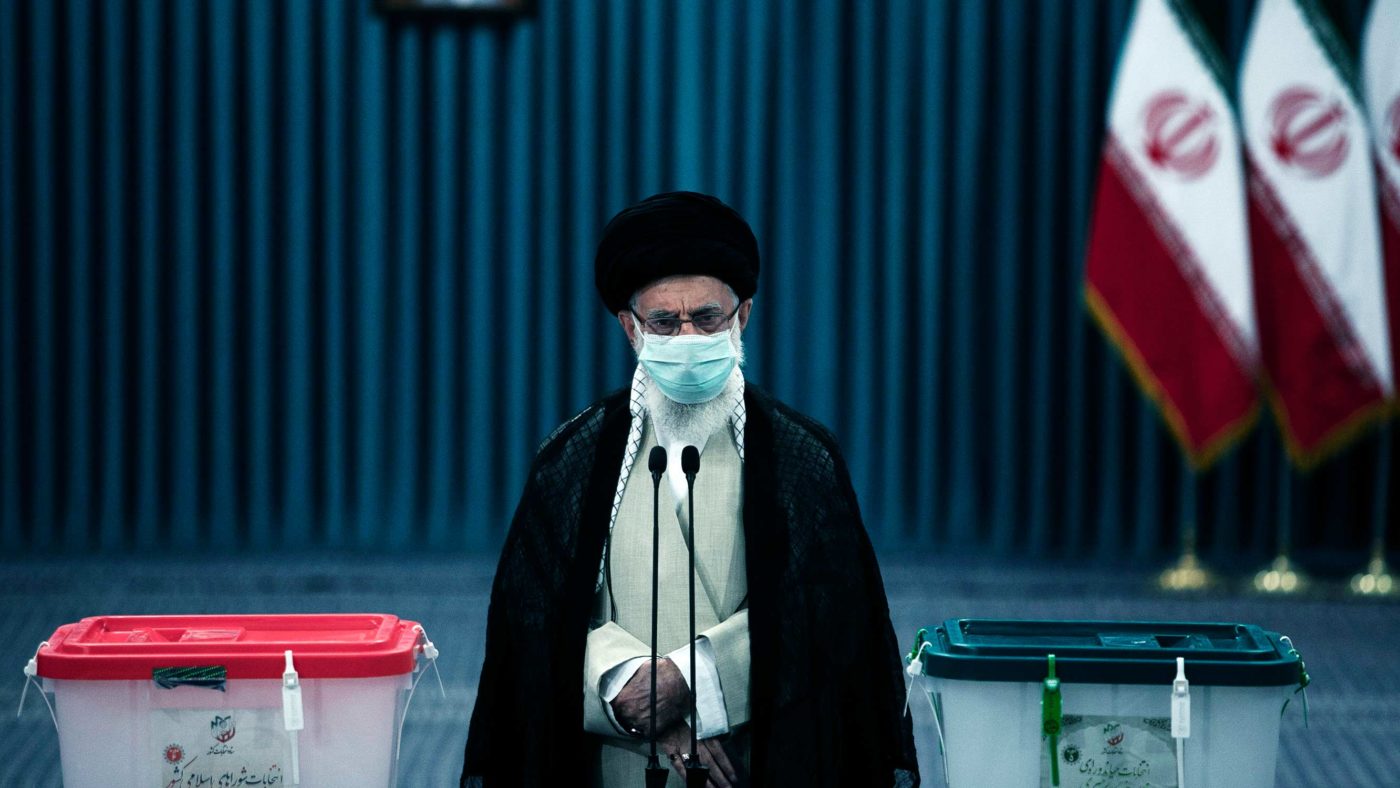Discussions of Iran policy are understandably focused on the issue of containing the country’s nuclear program, following resumption of negotiations in Vienna on Monday. But the narrow focus of those discussions warrants criticism, as it threatens to distract attention from other unresolved issues relating to Tehran’s malign activities.
Iran’s clerical regime is widely recognised as the world’s foremost state sponsor of terrorism. That status was firmly secured in the 1980s and 1990s when the Iranian regime and its militant proxies carried out a number of bombings and assassinations, not just in the surrounding region but also in Europe and the Americas. I myself was very nearly killed in one assassination plot in 1990 when gunmen opened fire on my vehicle in Istanbul. On at least two subsequent occasions, Iranian operatives attempted to enter the hospital room where I lay in critical condition, but were scared off before they could finish the job.
Dozens of other advocates for democracy and minority rights in Iran have not been so lucky. Hundreds of innocent bystanders were also killed in the ensuing years in bombings such as those targeting Khobar Towers in Saudi Arabia and the Argentine-Israeli Mutual Association building in Buenos Aires. Although there have been far fewer such attacks in the 21st century, this is less of an indication of changes in the policies and behaviours of the Iranian regime than it is a testament to improvements in security and counterintelligence among Iran’s adversaries.
Indeed, to this day Tehran continues its efforts to carry out assassinations and large-scale terrorist attacks. I was present at the site of some such plots, and was therefore nearly forced to relive my brush with death in 1990. Had those plots not been thwarted by the efforts of European law enforcement, they might have caused casualties numbering in the hundreds or even thousands, while also expanding the profile of the regime’s victims to include European and American lawmakers and foreign policy experts.
This was the case, for instance, in June 2018 when four Iranian operatives attempted to set off explosives at the annual gathering of Iranian expatriate activists that was organised just outside Paris by the National Council of Resistance of Iran. One of those operatives successfully infiltrated the venue and was waiting for two others to arrive with a device containing 500 grams of the high explosive TATP. Fortunately, the accomplices were apprehended at the French-Belgian border and the device was detonated in relative safety.
However, one Belgian police officer was slightly injured by the blast, despite standing at a distance deemed safe by the bomb squad. That is a testament to the power and sophistication of the weapons that Tehran now has at its disposal, and it underscores the severity of the threat posed by the 2018 plot’s mastermind when he travelled across at least three European countries with the explosive device, having brought into to the continent on a commercial flight from Iran.
The operative in question, Assadollah Assadi, was able to do this because he was working as a diplomat at the Iranian embassy in Vienna at the time, and was therefore able to avoid standard security screenings by using a diplomatic pouch. Assadi’s diplomatic cover underscores a fact that Belgian authorities emphasised when prosecuting him and his co-conspirators early this year – the Paris plot was not the work of rogue operatives, but was ordered at the highest levels of the regime, in keeping with its long history of using terrorism as a form of statecraft.
Assadi was sentenced to 20 years in prison in February and has declined to appeal the case. The other three operatives received sentences of between 15 and 18 years and presented their appeal to the Belgian court last month. There is no valid reason for them to serve anything less than their full sentences, but even if European authorities stand firm on that point, they will not have done nearly enough to confront the underlying threat of Iranian terrorism.
The regime itself has faced no real consequences for the 2018 plot, and few lasting consequences for its prior history of terrorist activity. In fact, a desire to foster friendly dealings with Tehran prompted some European governments to release suspected Iranian assassins back to their home country in the wake of the terror campaign that very nearly claimed my life. I fear that Western policymakers’ myopia regarding nuclear negotiations may encourage more of this sort of behaviour.
This, of course, would ultimately be detrimental to Western interests and would also pose a threat to the lives of Iranian expatriates who are working for the ouster of the clerical regime and the establishment of a democratic alternative. It would reinforce a sense of impunity that has long guided Tehran’s actions, not just with respect to foreign terrorism but also domestic human rights violations and the ongoing pursuit of nuclear weapons. To forestall any of these trends, the international community should exert serious economic and diplomatic pressure on the clerical regime in response to every new threat, even those that do not come to fruition.
Click here to subscribe to our daily briefing – the best pieces from CapX and across the web.
CapX depends on the generosity of its readers. If you value what we do, please consider making a donation.


